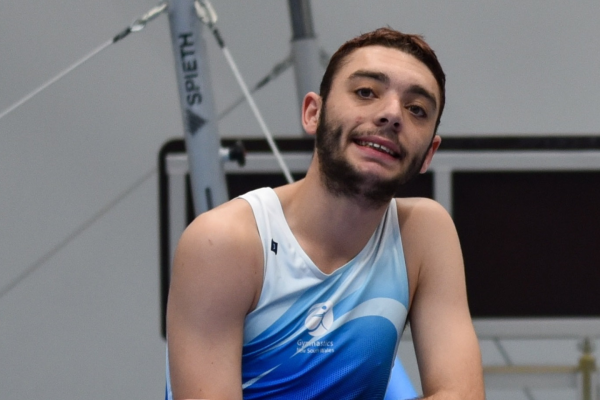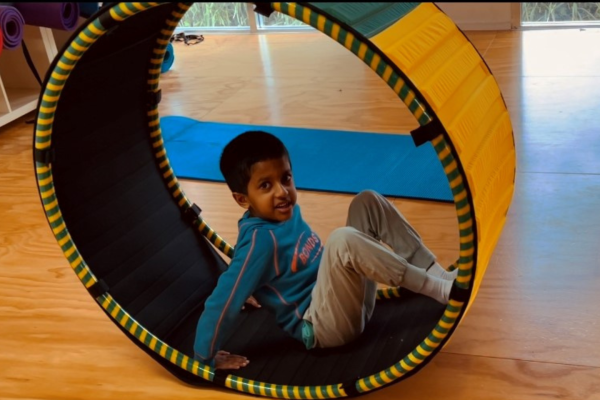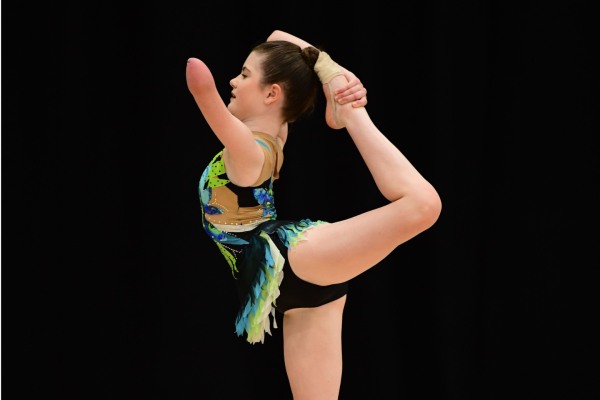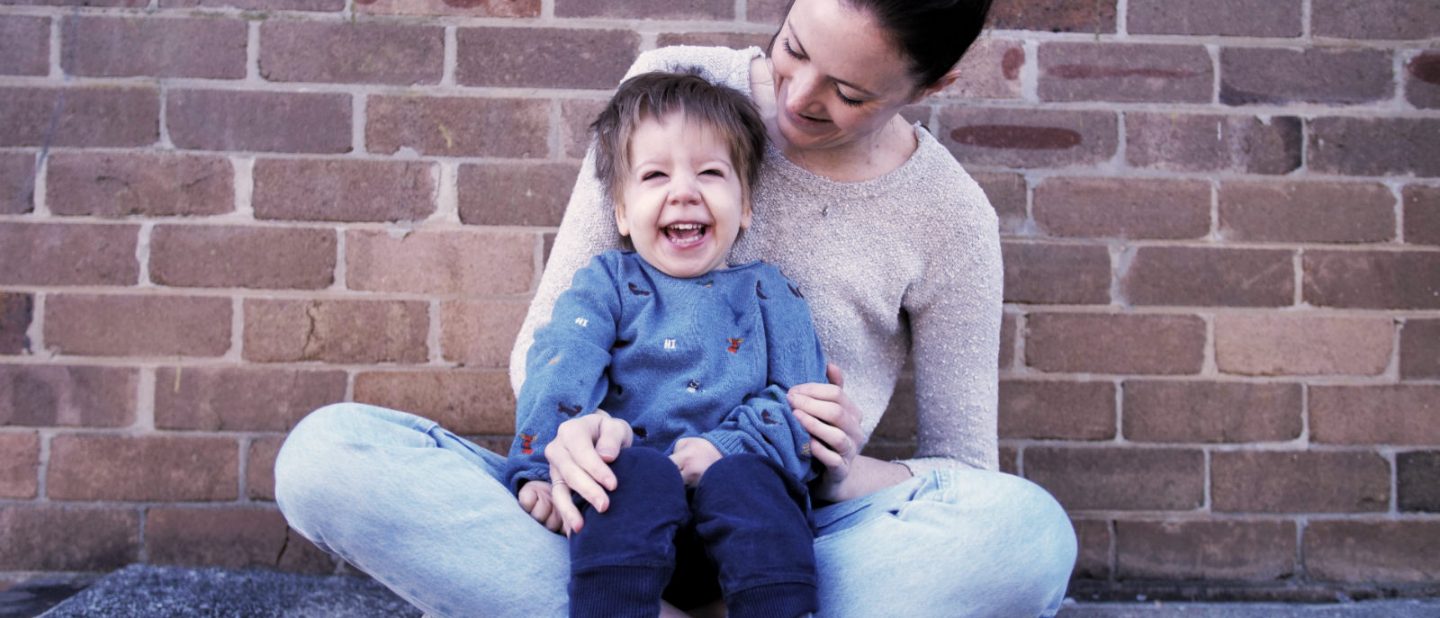
We got this: the mums who made me realise how special we have it
By Melanie Dimmitt
It’s a Monday evening. A friend and I are enroute to a self-care seminar for mums. She drives while I gab away about the imminent wine and cheese, revelling in the freedom of a rare weeknight out – look at us, nurturing our barely-there self-care regimens! Then my phone starts ringing. My partner’s name flashes on the screen. My stomach lurches.
This isn’t good.
I’d left the house with the niggling feeling that my son was out of sorts. While technically non-mobile and non-verbal, our three-year-old has ways of letting us know when something’s not right. That evening his limbs had been stiff – not unusual for a kid with quadriplegic cerebral palsy – but the real red flag was that we couldn’t get him to smile. His favourite Frozen song didn’t muster so much as a smirk.
I’d felt uneasy as I transferred my purse, phone and keys into a handbag that needn’t facilitate an aisle’s worth of Baby Bunting kit (did I mention we also have an 18-month- old?) but my partner, the legend he is, said: ‘Go, have fun.’
Half an hour later, in the car with my friend, I hold my breath and answer his call. ‘An ambulance is on its way,’ he says, cool and collected considering the circumstances. ‘I’m coming,’ I reply, and before I’ve so much as looked at my friend she has pulled off an impossible U-turn and is hooning back to my house.
I start to stammer out how sorry I am for ruining our night and she stops me abruptly.
‘I am the absolute last person you need to be apologising to,’ she says. ‘Trust me,
I get it.’
As another mother of a child with disability, she really does.
If you’d described this scene to me three years ago I would have been horrified. By the medical emergency, of course, but also because the self-care seminar I was on
my way to was specifically designed for parents raising children with disabilities. In
the early weeks and months that followed my son’s diagnosis I would sooner have snorted wasabi than congregate with parents in a similar spot. I couldn’t bear to admit that I had anything in common with that cohort. It was not a club I wanted to join.
So, unlike more diligent mothers I’ve since met who were quick to infiltrate the Facebook groups, foundations and support networks, I didn’t seek out kindred spirits on the special needs scene. My first encounters happened sporadically – and very slowly.
Some months after the diagnosis a colleague at the magazine I was working for slipped me the phone number of her aunt who also has a child with cerebral palsy, a few years ahead of mine. After much hesitation, I called her, a total stranger, and was immediately ensconced in the warmth of our rapport. This mother is a practical sort and told me about some therapies my son could start. ‘Get busy,’ she said. ‘Stay proactive. And call me any time.’
I hung up the phone feeling better already.
On her advice I found Arlo an excellent therapy centre and, in its waiting room on a well-worn couch, I would meet Rebecca and Joanna, two mothers whose children have cerebral palsy. Tired-eyed exchanges turned to small talk, small talk turned to takeaway coffees and a few months later we were out to lunch, sipping something stronger while chatting about thoughts and feelings I had filed away as strictly off-limits.
I told Bec and Jo how I feared the future. How I never felt like I was doing enough for my son. How it killed me to compare him to other, textbook- perfect kids. How I was holding on to hope, despite the odds. They listened, empathised and shared their own struggles with me. I departed that lunch feeling lighter. Like, I’ve got this. Like no matter what happens, everything will be okay.
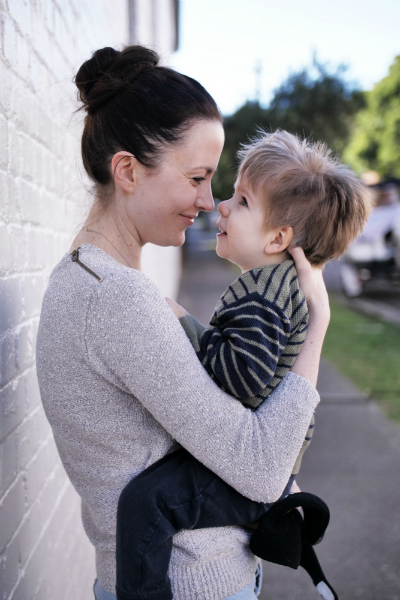

I’d discovered that talking with other parents travelling this not-so-predictable path is, hands down, the best antidote to the obsessions that come with this gig.
During my earlier efforts to pull myself out of my misery, while keeping other parents at arm’s length, I had decided to write a book. Under the guise of ‘research’, I contacted people all over the world, raising kids with all kinds of disabilities and, in the very safe, one-sided style of an interview, asked them how they coped while coming to terms with their child’s diagnosis. A lot of journaling, yoga and wine drinking was reported, but by resounding consensus, the most comfort had been gained from connecting with other parents.
Waiting rooms had set the scene for the start of many friendships and countless more had formed online. One mother, whose daughter has a rare combo of four genetic mutations, found her ‘tribe’ through the Feeding Tube Awareness Foundation on Facebook. ‘I could post a question and real parents with real kids with real feeding tubes were answering it,’ she recalled. ‘Not some doctor who read a section on it and has only dealt with them in the hospital.’
Another mother, based in the US, told me she’d be lost without social media. ‘There’s a global Facebook page for my son’s condition and I’ve connected with quite a few mums on that page. There are three I’m close with – one’s in Australia, one’s in Dubai and one’s in California. All of us take our kids to an intensive therapy centre in Los Angeles and one day we all got to meet and hug each other. That was so wonderful.’
Some parents I spoke with had gone a step further and started their own communities. Natalie Roberts-Mazzeo’s Miracle Mama Facebook group is a haven for hundreds of special-needs mums. Tanya Savva runs Rest and Reset Retreats that bring parents and carers together – as does the Lucky Mama network, launched by Jaynie Johnson. During a recent Lucky Mama dinner at a Sydney pub I marvelled as a group of mothers, many of whom had never met, dived effortlessly into deep conversations over pinot gris and chicken parmigiana.
As my book came together, I realised that I wasn’t really ‘interviewing’ parents. Our chats were casual, honest and uncannily easy. Over coffees, phone calls, Skype connections and emails I was making new friends. One of them was Heather, the mum I’d been travelling to the self-care seminar with, who raced back to my house the second she realised my son was in trouble.
Heather kept me calm and got me home just as the ambulance screamed up our driveway. She checked in with us while we stayed a few nights in hospital, asking if we needed company, food, wine, child-minding, anything… as did many other people I’ve met since my son came along.
So to Heather, Bec, Jo, Natalie, Tanya, Jaynie and all of the special needs parents I’ve been fortunate enough to befriend, thank you. Thank you for understanding. Thank you for not judging. Thank you for knowing how this experience is as joyful as it is challenging, exhausting as it is enriching. And thank you for helping me realise just how special we have it.
Melanie Dimmitt’s debut book, Special: antidotes to the obsessions that come with a child’s disability, is out now. You can order your copy here –https://www.venturapress.com.au/parenting#/special and also head over to a competition page where we have two copies to giveaway.





